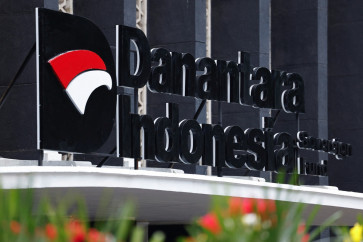Popular Reads
Top Results
Can't find what you're looking for?
View all search resultsPopular Reads
Top Results
Can't find what you're looking for?
View all search resultsPassage of BPJS bill ‘irregular’
When the House of Representatives endorsed the social security providers (BPJS) bill in a plenary session on Oct
Change text size
Gift Premium Articles
to Anyone
W
hen the House of Representatives endorsed the social security providers (BPJS) bill in a plenary session on Oct. 28, 2011, all 560 legislators were not in possession of the final draft of the bill and the endorsement apparently went beyond the normal legislative procedure.
Following the plenary session, former members of the House’s special committee tasked with preparing the final draft of the bill and representatives of the government discussed the bill’s substance for four consecutive days, adding 20 new chapters to the bill, which had already been passed.
The bill was endorsed without any exposure to the public, which is a final phase of the legislative process that is recommended in the House’s internal rulings.
This kind of irregularity, critics said, would lead to corruption as it would provide room for lawmakers to make illicit deals with those who had a stake in the law.
Recently, Constitutional Court chief justice Mahfud MD blamed the poor quality of legislation in Indonesia on the practice of corruption in the process of lawmaking at the House. He claimed that a number of articles in several laws declared unconstitutional by the court were likely inserted and endorsed at the orders of certain interest groups.
Sebastian Salang, executive director of the Parliament Watchdog (Formappi), said non-governmental organizations were suspicious of transactions during the deliberation of a number of laws, including the 2009 health law, 2009 special Batam economic zone law and 2011 financial service authority law.
“Corruption in lawmaking is like a bad smell. It can be smelt and proven, though it cannot be seen,” he said, citing the fact that during 1994-2004 12 ex-lawmakers were still serving jail sentences in Salemba, Pondok Bambu and Cipinang prisons for their involvement in a political deal with Bank Indonesia to make changes to the law that “benefited” the central bank.
He said the House should investigate the alleged transactions behind the endorsement of several crucial laws and should stop making excuses that the process was subject to nothing but regular political lobbying.
Deputy chairman of the ex-special committee Ferdiansyah admitted to abnormalities in the BPJS bill’s endorsement, but claimed it did not bring any change in the bill’s substance. Hazbullah Tabrani, a member of a team of experts that prepared the bill, claimed that the Asian Development Bank, European Union and the Germany Gesellschaft für Technische Zusammenarbeit spent a huge amount of money for the team’s experts and lawmakers to prepare the law.
Deputy House speaker Pramono Anung Wibowo claimed the bill’s endorsement was valid and denied there had been any political deals behind it, although the endorsement was unusual.
“The House was in an emergency political climate and pushed for the bill’s endorsement, but the House was not bound by any political deals with certain lawmakers, the government and striking workers,” he said referring to massive labor rallies demanding the bill’s endorsement.
Another deputy House speaker, Priyo Budi Santoso, who presided over the plenary session, concurred and gave a political guarantee that the bill’s substance was precisely the same as what has been approved by the government and the House during the plenary meeting.










